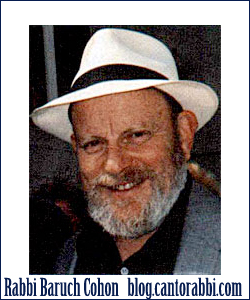PURGING EVIL – Shoftim – Deut.16:18-21:9 – by Rabbi Baruch Cohon
Justice is Moses’ theme in this section, setting out rules and methods to achieve that goal. Courts, magistrates, officers – all the nation’s public administrators have a basic duty to see that justice is done. He starts out by cautioning those in authority to avoid showing favoritism, and never to accept bribes, “for a bribe can blind the eyes of the wise, and pervert the words of the righteous. Justice, justice shall you pursue.” Classic words.
But the charge that becomes a refrain in this section is even more telling. It says simply: uvee-arta ha-Ra mikir-Beh-kha – “Purge the evil from your midst.” Evil is there. We must get rid of it. And sometimes that requires violent action. The first word of this refrain, uvee-arta, appears in other connections and usually involves destruction by fire, as in bee-ur khametz, the destruction of leaven before Passover, or in the case of mav’eer, someone who started a fire that destroyed his neighbor’s field.
Here we find several instances of capital punishment for the purpose of destroying evil. A most dramatic example of Mosaic justice comes at the end of Chapter 19, and concerns a false witness. Let’s call him Aleph. He “blows the whistle” on someone called Bet. Now the Torah does not specify what Aleph testifies that Bet did. It could be murder, idolatry, perversion, or adultery – all of which called for capital punishment. Or it could be something as contemptible as moving a fence to steal some land. Aleph is the only witness, and we read in no uncertain terms that verdicts require at least two witnesses. But the accusation is there. So both Aleph and Bet must appear in court. The judges and officers must then investigate thoroughly, and find out the real facts. If those facts show that Aleph accused Bet falsely, then the result will be: “You shall do to him as he plotted to do to his brother. Thus shall you purge the evil from your midst.”
Poetic justice, indeed.
Reading these 3,000-year-old rulings, we can well reflect on how knowledge of Torah law prevented corruption in ancient Israel. Certainly we find no descriptions here of changing those laws to conform with “social progress.” No such thing as accepting same-sex unions and calling them marriages on the basis of civil rights. Even the non-religious government of Russia reportedly just passed a law effectively reiterating Leviticus on the subject of homosexual relations: “Do not lie with a man as you lie with a woman. It is an abomination.”
What we do find is presumption of innocence. You were innocent until proven guilty, in Moses’ court just as in America. There were some differences. This section continues the provision of Cities of Refuge, protecting someone who killed by accident from the legally approved vengeance of the victim’s next of kin. In addition, two or three eye witnesses were required to convict a suspect. And circumstantial evidence was not admissible, unlike U.S. courts where murder verdicts frequently depend entirely on circumstantial evidence. So far as we know, however, Mosaic justice applied equally to the native and the foreigner, to the rich and the poor, to men and to women. Justice, justice shall you pursue. Why is the word repeated? Because, say the commentators, we must employ fair and just methods to carry out the law. Only thus can we purge the evil from our midst.
You can contact Rabbi Baruch Cohon for further discussion and/or comments at: baruch.c.2011@gmail.com


